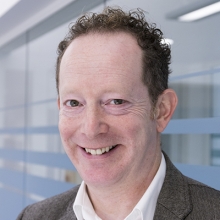Top tips from our discussion on the evening:
Is a PhD useful in finance?
Yes – your creative and research skills are valuable and the qualification often means people will take you seriously. You’ll know how to research robustly and make good arguments.The panel advised that you should continue to focus on your own personal development and find your own unique way of looking at things.
Do you need knowledge of finance?
No, not necessarily. As someone with a PhD you will have the skill of gaining new knowledge and applying it quickly. This is much more valuable than extensive knowledge of a particular sector. The panel pointed out that finance is an enormous industry and no one person can know everything about it. Be prepared to demonstrate an interest in and awareness of finance, perhaps by reading the Financial Times regularly.
What are the differences between academic and commercial life?
In academia you have much more flexibility and freedom to plan your own work and there can be culture shock in making the change. The corporate world is profit driven and rewards hard work more generously than academia. You may need to be prepared to take jobs you wouldn’t normally take in order to gain experience. You can learn from any role, so this is recommended.
Is it worth trying to get internships in finance?
No. These are usually designed for undergraduates and as a PhD your skills, maturity and experience are way in advance of anything you will learn from an internship.
How would you prepare for an interview?
Research the organisation thoroughly – make sure you understand the job on offer. Remember that one of your key skills (problem solving under pressure) is one of the most critical for a career in finance. Be friendly and positive in interviews and remember that people hire people they like to work with.
Our speakers were:
Raffaello Morales – JP Morgan
Raffaello works at JPMorgan Chase in Risk Management where he has covered a variety of businesses within the macro environment. He holds a MSc in theoretical physics from Imperial College and a PhD in applied mathematics from King’s College London. He’s a fellow of PlusValue, a social impact consultancy, and strategist and event manager for FinanceMatters, a network of financial professionals interested to use finance for food causes.
Sophie Jiabao Sun – Global Equity Analyst at Financial Orbit
Sophie is a trader at a proprietary trading firm and a global equity analyst at Financial Orbit, an investment management service company. She trades equities, derivatives, currencies and cryptocurrencies with a technical approach. In the analyst role, she focuses on global equities with a fundamental approach. Prior to graduation, Sophie worked as a graduate teaching assistant at King’s college London and gained experience at United Capital, a private equity firm, in Beijing.
Sophie graduated from King’s College London in 2017 with a PhD degree in Chinese Studies Research, passed viva with only very minor corrections in February. In 2012, Sophie completed her MSc from King’s College London.
Adrian JS Carr – Impact Investor ADCA INVESTMENTS LIMITED
Adrian has over 25 years of experience at top investment houses, including JP Morgan, Paribas and Credit Suisse. Adrian currently runs his own investment business, ADCA investments, combining his scientific background with a career in finance. ADCA invests in a range of assets, monitoring their impact in addition to their risk/return profile. ADCA primarily focuses on early stage science based businesses. The current portfolio includes positions in food production, alternative energy providers and healthcare.
Adrian has a Ph.D. in Genetics & Biotechnology from Kings College, London. Adrian is married with three grown up children and is a keen cyclist and triathlete.

